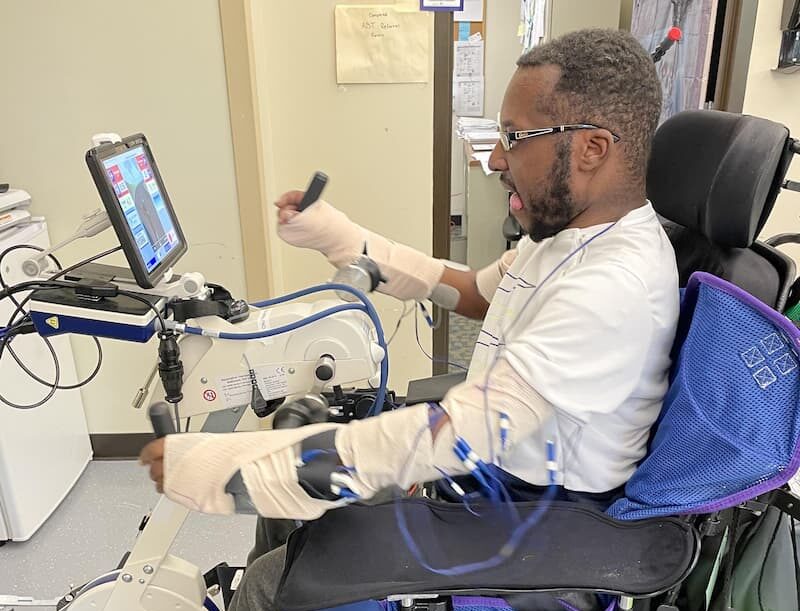Understanding the types of Guillain-Barré syndrome
Guillain-Barré syndrome (GBS) is a rare neurological disorder that affects the peripheral nervous system. There are four types of Guillain-Barré syndrome, each with its own specific characteristics.

Guillain-Barré syndrome (GBS) is a rare neurological disorder that affects the peripheral nervous system. There are four types of Guillain-Barré syndrome, each with its own specific characteristics.
The most common type, AIDP affects the myelin sheath, the protective covering of nerves.
Symptoms include:
AMAN damages the axons, the long, threadlike part of a nerve cell.
Symptoms include:
This type affects both the myelin sheath and the axons.
Symptoms include:
MFS attacks the cranial nerves, which are nerves in the head.
Symptoms include:
Shepherd Center offers comprehensive treatment programs for GBS, emphasizing early intervention, personalized care plans, and a multidisciplinary team of specialists. Using advanced technology like robotics and electrical stimulation, we provide intensive inpatient rehabilitation, even for patients who use ventilators to breathe, to promote early recovery. Outpatient programs continue support with pain management, adaptive devices, speech therapy, psychological counseling, and recreational therapy to help patients regain strength, mobility, and independence. With tailored services and a focus on holistic care, Shepherd Center helps individuals with GBS achieve their recovery goals.

Every individual’s journey is unique, and deciding to pursue rehabilitation can feel overwhelming. That’s why we encourage you to begin with an admissions inquiry.